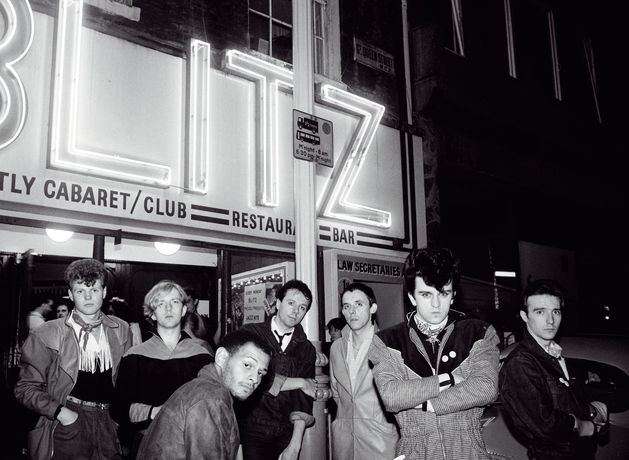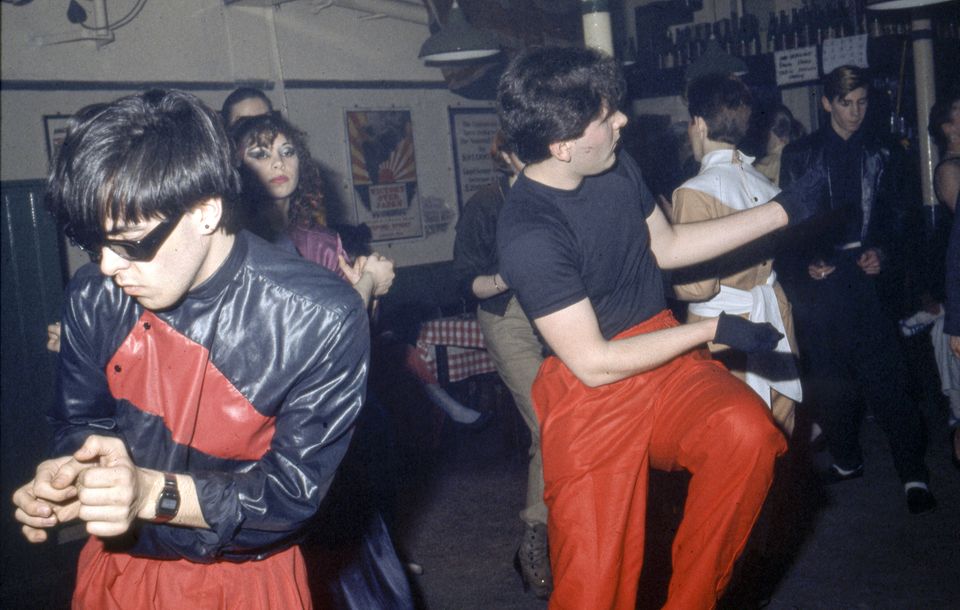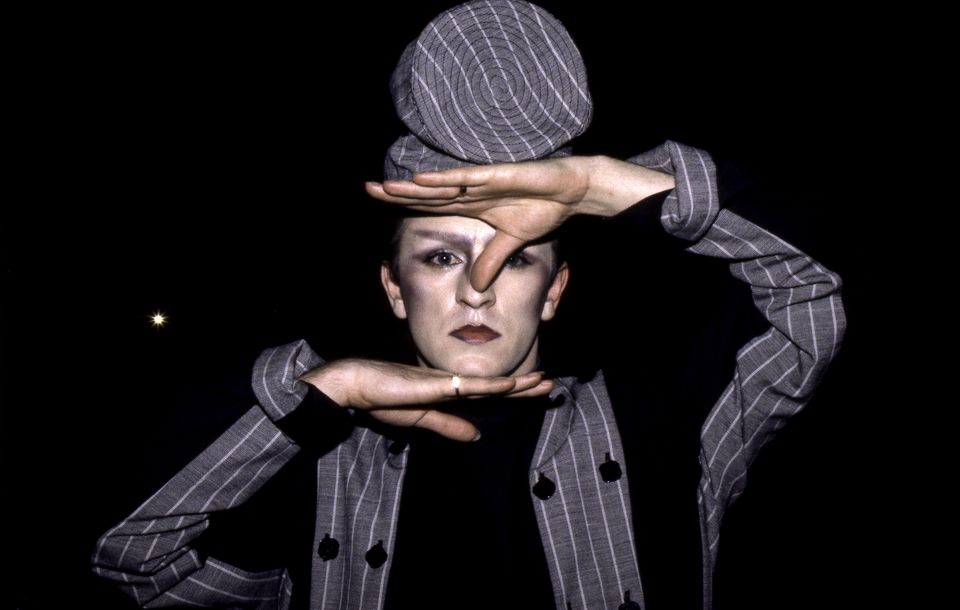Entertainment
‘It’s hard to believe it existed in such a homophobic, horrible, violent London’: the nightclub that shaped the sound of the 80s

Rusty Egan on creating the Blitz, the Soho club night that gave birth to the New Romantics — and why his new compilation of its top sounds doesn’t feature Boy George
The Blitz may have been in existence for only 18 months, but its influence can still be felt today. Not only is it credited with giving birth to the New Romantics movement, but it also helped shape the distinct pop sound of the 1980s and beyond.
Manchester’s Hacienda remains the most important British club when it comes to impact on culture, but as for club nights — Egan and Strange’s creation only ever happened on Tuesdays — the Blitz stands out on its own.
Strange died of a heart attack at 55 in 2015, but Egan, now 66, is still going strong. A musician and DJ, he has just released a boxset that pays tribute to the music he spun on the decks at the Blitz in 1979 and 1980.
Blitzed! collects 66 songs from that era on CD and 33 on vinyl. He concedes that there were many more that he would have liked to include but had to be left off due to copyright issues. “What we’ve done is created a 259-track Blitzed! official playlist on Spotify,” he says. “They’re all records that I would have played at the Blitz.” The whole thing runs to 21 hours.
“I had a Boy George fan come up to me the other day,” he adds, “and said, ‘Ugh, another compilation and Boy George isn’t even on it’. And I said, ‘Well, that’s because he was the cloakroom attendant. He hadn’t made any records then.’”
It was, indeed, true. George O’Dowd had been taking baby steps into music at the very start of the 1980s: Boy George and Culture Club were just around the corner.
Regular attendees of the club, the so-called Blitz Kids, reads like a who’s who of British pop from the 1980s: Billy Idol; Sade; Marilyn; Tony Hadley, Martin Kemp and Gary Kemp of Spandau Ballet; Siobhan Fahey of Bananarama; Tony James of Sigue Sigue Sputnik. The club’s proximity to St Martin’s art college also ensured it would be peopled by future fashion designers.
The Blitz, Egan insists, was much more than a mere nightclub. “It was nothing like those clubs that were playing the Bee Gees and there were a few fights on a Friday night. What it was was a gathering of people who had met three years previously at Sex Pistols gigs or down the Kings Road [the Chelsea street that was a fashion hotspot in the 1960s and 1970s], or at St Martin’s art school, or in Piccadilly where a lot of LGBTQ people would end up and meet other LGBTQ people. You in Ireland would know all about that — ‘You’re possessed by the devil if you’re gay!’ — and so many people ran away to London.”
Rusty Egan DJing at the Blitz Club in 1979. Photo: Peter Ashworth
By gathering together in the Blitz, this disparate group might have felt, in Egan’s words, that they had “found their people”, especially when it came to flamboyant outfits.
“Most of these people had no money. They were starving students who ate baked beans but when they went out for one night, they thought, ‘I gonna be a star’. That was the point. You might have been starving, but you didn’t have to look like it. You weren’t a tramp” — a reference to a new documentary on the scene, Tramps! — “even though when we were coming home at seven in the morning we might have looked as though we were.
“We’d go out looking glamorous but because it was two-for-the price-of-one on Tuesday nights, everyone got hammered. The music, of course was fantastic — by me! — and we might end with Perfect Day by Lou Reed being played. And it was perfect. Looking back, it’s hard to believe that this existed in such a homophobic, horrible, violent London. It was a bad time.”
It certainly was. Britain’s economy was in a bad way towards the end of that decade, having been scarred by industrial unrest, the oil crisis and rising inflation. Margaret Thatcher was elected prime minister the same year that the Blitz Club started, and the Tories would retain power for the next 18 years.
Egan says some similarities between that time and now. “We’re coming to the end of 14 years of Tory rule,” he says. “It’s time for a new change, and change is needed, because London has become somewhere that a lot of creative people can’t afford to live in any more. What’s a city without its creative souls?”
This is a question that is being asked of the Irish capital too.
As the Blitz’s reputation grew, more and more people tried to get in. Steve Strange employed a policy that favoured the outlandishly attired: squares need not apply. Egan says the idea was culled from New York’s legendary club, Studio 54, which he visited around that time. “There was a line of people the length of the street outside it and most wouldn’t have been able to get in.”
Dancing at the Blitz club night. Photo: Terry Smith Archive
Despite Studio 54’s fame — one bolstered by the presence of such luminaries as Andy Warhol — Egan insists that when he got in, he was decidedly unimpressed by the music choices. “It was just disco, really, the music you could hear anywhere else. But Larry Levan over at the [LGBT-friendly Manhattan club] Paradise Garage was making the mixes. He was extremely talented at beat-matching. And that attracted me because I’m a drummer.”
Several celebrities from different eras turned up, too, including David Bowie — a hero for the likes of Egan and Strange. Sadly for Egan, he was not present that night — someone else was on the decks. Several Blitz Kids would be hand-picked by Bowie to appear in his groundbreaking video for Ashes to Ashes. It enjoyed heavy rotation on the fledgling MTV, which was just as well as it was the most expensive music video ever created up to that point.
Phil Lynott was an occasional visitor. Egan puts on a plausible Dublin accent when remembering the conversations he had with the Thin Lizzy man. Later, he played drums on a remixed version of Lynott’s Yellow Pearl. A huge number of people would have heard it, as it was the Top of the Pops theme from 1981 to 1986.
Although Egan is best known as the Blitz club DJ, his music career is rich and varied. He first enjoyed a measure of prominence as the drummer in Rich Kids, the new wave band that featured a post-Sex Pistols Glen Matlock and a pre-Ultravox Midge Ure. But by the time he co-founded the Blitz, the Rich Kids had packed it in.
He continued to work with Ure in a series of short-lived bands, including the Misfits, Skids and Shock, before the pair founded Visage with Steve Strange. The band had a huge hit with Fade to Grey.
Egan is proud of his Irish roots. He was born in Croom, Co Limerick, but has lived in London for virtually all his life. “I’m a big fan of U2 and Van Morrison and Mary Black and Clannad and anything Celtic and Irish.”
Steve Strange, the frontman of Visage, who co-founded the Blitz with Rusty Egan. Photo: Terry Smith
His association with U2 goes back to the band’s early days — “Adam Clayton was at my wedding” — and, with the band’s blessing, he remixed a number of their songs, including a comparatively recent cut, Red Flag Day.
Right now, Egan is working on new music. He says he still has that restless creativity that was there when he first picked up drumsticks as a teenager.
“I’m working on a song with Glen Matlock,” he says, enthusiastically. “He brought me Earl Slick — who played on Bowie’s Station to Station — and my song is a homage to all the great guitar players that we’ve lost. We lost Steve New [his old band mate in Rich Kids] and we lost Jeff Beck. And Mick Ronson, who’d produced the Rich Kids — we lost him very early on.
“So, I went back to an old song that Rich Kids had started but had never released, called Forever. I started to rewrite it with Rob Davis, who was in Mud in the 1970s, but he’s more famous now for co-writing Kylie Minogue’s Can’t Get You Out of My Head. When I eventually get it done, it will be called Forever (They Live On, They Live On, They Live On).”
He pauses. “The music will be here way after we’re all gone,” he says.
And so too will the memory of a Tuesday club night in London’s seedy core in the first couple of years of Thatcher’s reign.












